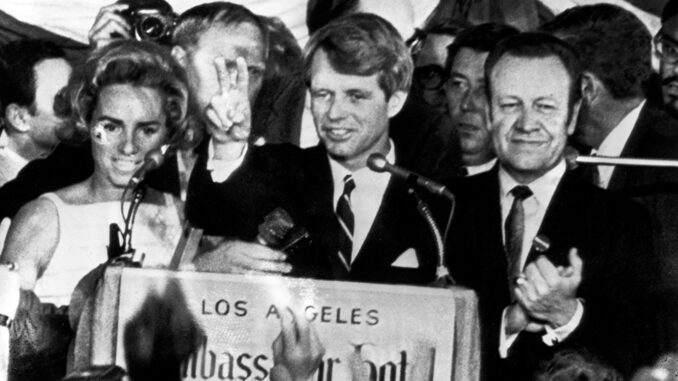
“This Week” looks back at the key events from this week in history.
June 3
1621: The Dutch West India Co. received its charter for a trade monopoly in parts of the Americas and Africa.
1937: Edward, The Duke of Windsor who had abdicated the British throne, married Wallis Simpson in a private ceremony in Monts, France.
1965: Astronaut Edward H. White became the first American to “walk” in space during the flight of Gemini 4.
June 4
1812: U.S. House of Representatives approved a declaration of war against Britain by voting 79-49.
1912: Novarupta on the Alaska Peninsula began a three-day eruption, sending ash as high as 100,000 feet. The most powerful volcanic eruption of the 20th century.
1942: World War II Battle of Midway began, resulting in American victory against Japan and marking the war’s turning point in the Pacific.
1940: Allied military evacuate some 338,000 troops from Dunkirk, France.
1944: U-505, a German submarine, was captured by a U.S. Navy task group in the South Atlantic; it was the first such capture of an enemy vessel at sea by the U.S. Navy since the War of 1812. The U.S. Fifth Army began liberating Rome.
June 5
1968: Sen. Robert F. Kennedy was shot and mortally wounded at the Ambassador Hotel in Los Angeles.
1975: Egypt reopened the Suez Canal to international shipping.
2004: Ronald Wilson Reagan, the 40th president of the United States, died in Los Angeles at age 93 after a long struggle with Alzheimer’s disease.
June 6
1844: The Young Men’s Christian Association was founded in London.
1934: The Securities and Exchange Commission was established.
1939: The first Little League baseball game was played in Williamsport, Pennsylvania.
1944: Allied forces stormed the beaches of Normandy, France, on “D-Day”
June 7
1776: Richard Henry Lee of Virginia offered a resolution to the Continental Congress stating that “these United Colonies are, and of right ought to be, free and independent States.”
1848: French painter and sculptor Paul Gauguin was born in Paris.
1942: The Battle of Midway ended in a decisive victory for American naval forces over Imperial Japan, marking a turning point in the Pacific War.
